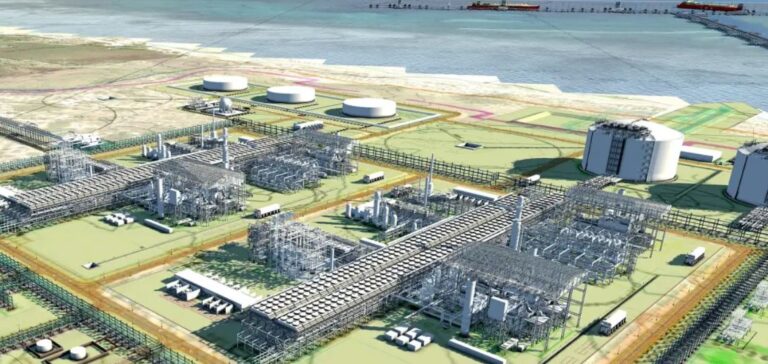The United States has just approved a $4.7 billion loan aimed at financing the Mozambique LNG project, led by the French company TotalEnergies. This large-scale gas project, located in Cabo Delgado province, had been suspended in 2021 following a jihadist attack that prompted TotalEnergies to declare force majeure. Initially approved in 2020 under the Trump administration, the loan recently required amendments to account for accumulated delays and a new completion date set for 2030. TotalEnergies holds a 26.5% stake in this estimated $20 billion project, primarily targeting the Asian market.
Restart conditional on financial approvals
Funding provided by the U.S. Export-Import Bank (EXIM Bank) is part of a series of approvals awaited by TotalEnergies to restart operations. According to Patrick Pouyanné, CEO of the French company, this American loan is part of a broader process that also involves British and Dutch export credit agencies. These financial approvals represent an essential condition for relaunching the project, with liquefied natural gas production now scheduled to begin between 2029 and 2030, instead of the initial 2028 timeline.
In September 2024, U.S. media reported allegations of abuses allegedly committed by security forces tasked with protecting the site after the events of 2021. At the time, TotalEnergies Mozambique LNG stated that it had not identified credible evidence to corroborate these allegations.
Mixed reactions to the loan approval
The African Energy Chamber (AEC) reacted positively to the U.S. approval of the loan. In a recent statement, the AEC emphasized that this decision represents a significant boost for one of Africa’s largest current energy investments, capable of reshaping Mozambique’s energy landscape as well as other regions across the continent.
However, several non-governmental organizations, including Reclaim Finance and Friends of the Earth (Les Amis de la Terre), have sharply criticized this decision. In a recent joint statement, these NGOs urged financial institutions, notably French banks Crédit Agricole and Société Générale, not to support the project’s restart. They highlighted the potential negative climate consequences and ongoing human rights concerns related to the project site.
Regional economic and strategic stakes
The Mozambique LNG project is one of the most significant gas investments currently being developed on the African continent. Alongside TotalEnergies, it involves Mozambican partners as well as the Japanese group Mitsui, holding a 20% stake. The project’s revival is eagerly anticipated by Asian markets, the primary intended recipients of the liquefied natural gas produced.
This U.S. decision could also influence upcoming decisions by the British and Dutch agencies. For international financial markets, the effective restart of the project now depends on the definitive approval from these other financial institutions, essential for the full release of funds required to restart operations.






















